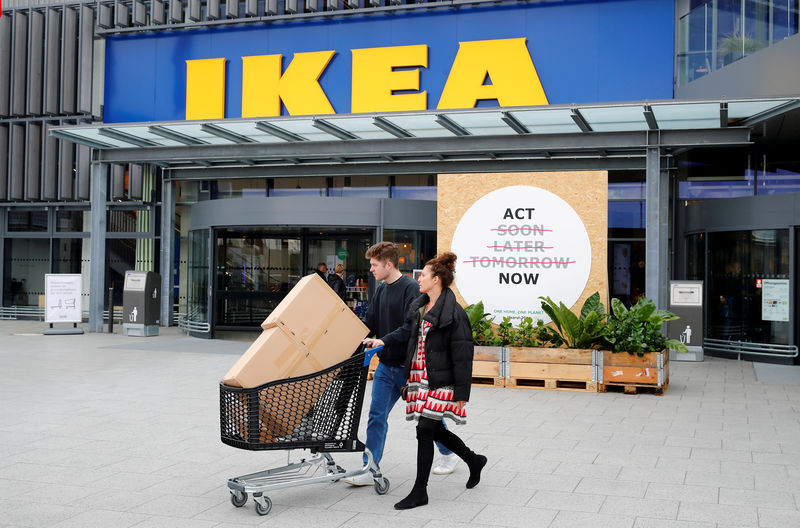This post was originally published on this site
https://i-invdn-com.akamaized.net/trkd-images/LYNXMPEFAQ0KE_L.jpg
STOCKHOLM (Reuters) – IKEA, the world’s biggest furniture group, said on Wednesday it would spend around 100 million euros ($110 million) on supporting its direct suppliers in moving over to renewable energy.
Brand owner Inter IKEA, which is in charge of supply, said it also planned to invest around 100 million euros in projects to remove carbon from the atmosphere through reforestation and forest protection.
It said the new investments would be part of its work towards IKEA becoming climate positive – to cut more greenhouse gas emissions than the IKEA value chain emits – by 2030.
The target includes its around 1,000 direct suppliers. IKEA produces around 10% of its range itself and sources the rest from suppliers.
In September Ingka Group, which owns most IKEA stores, pledged to exceed its 2020 target to produce as much renewable energy as the energy it consumes by the year’s end.
More than 400 firms including IKEA, H&M, Coca-Cola (NYSE:) and Sony have committed to a U.N.-backed initiative to help limit global warming to below 2 degrees Celsius.
Fusion Media or anyone involved with Fusion Media will not accept any liability for loss or damage as a result of reliance on the information including data, quotes, charts and buy/sell signals contained within this website. Please be fully informed regarding the risks and costs associated with trading the financial markets, it is one of the riskiest investment forms possible.


